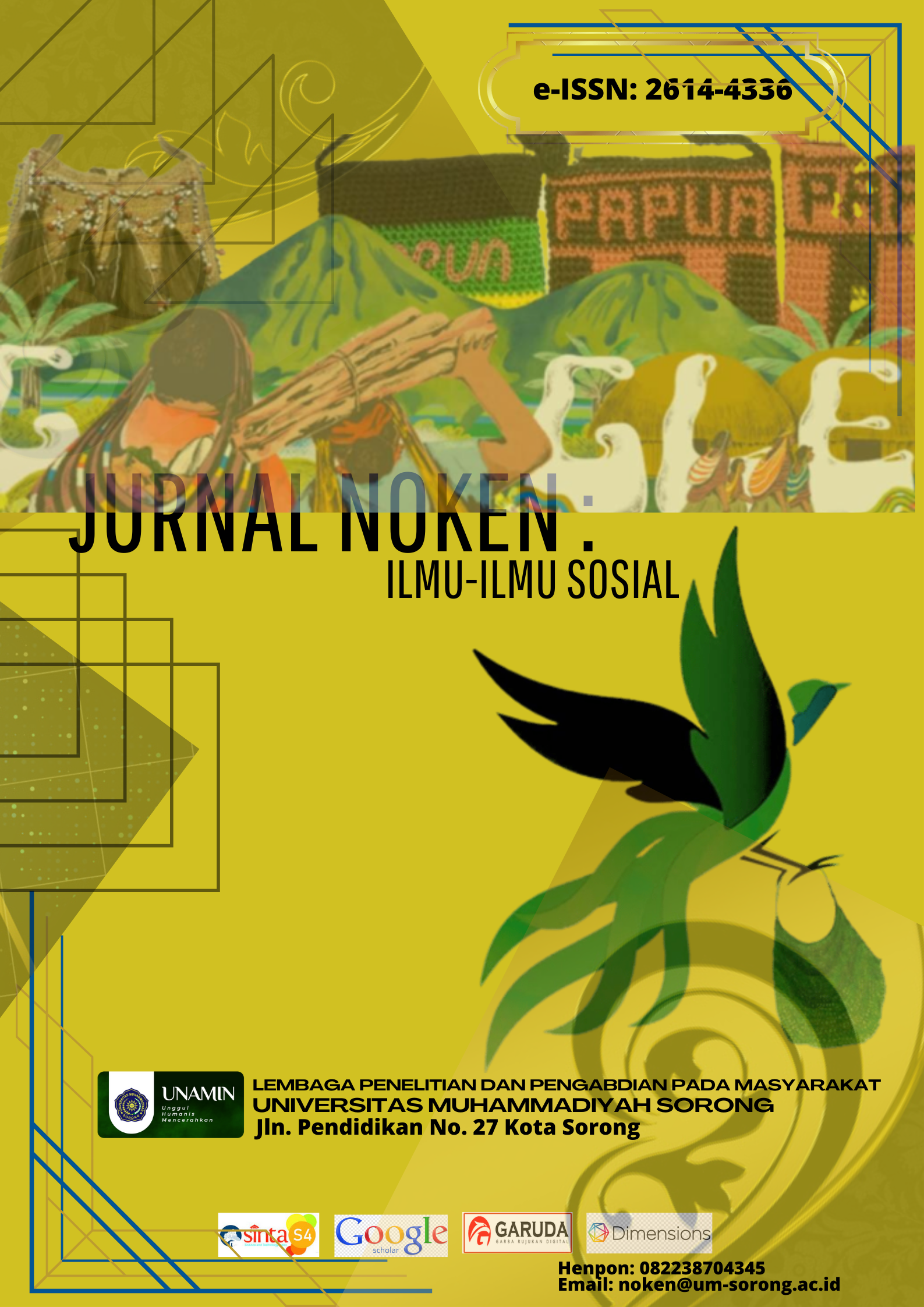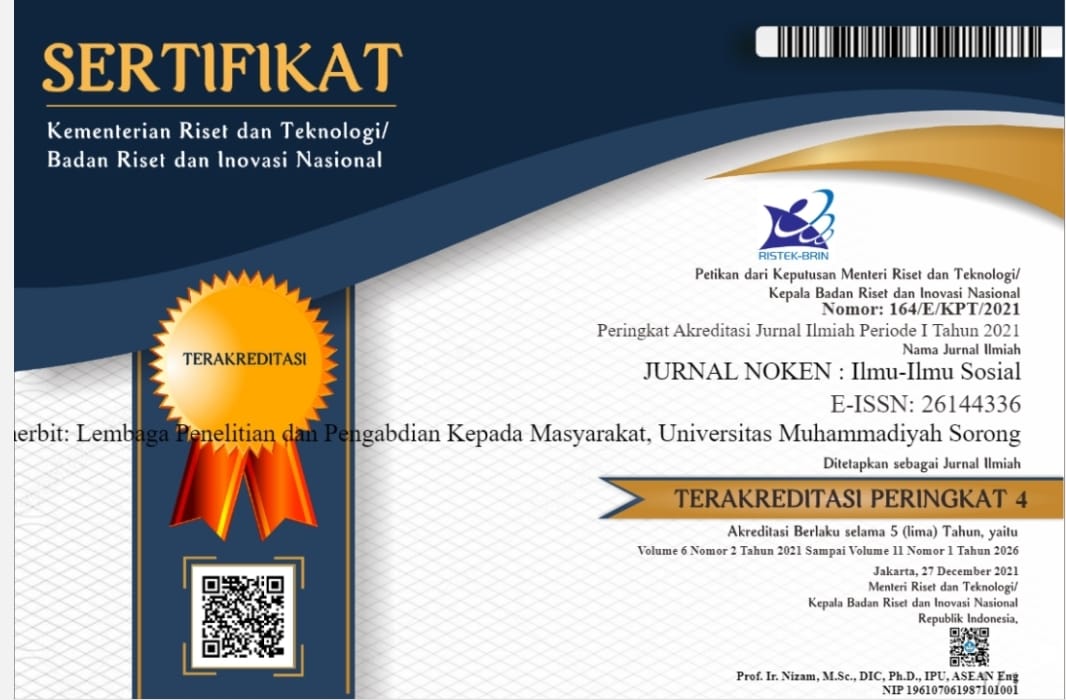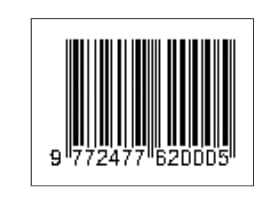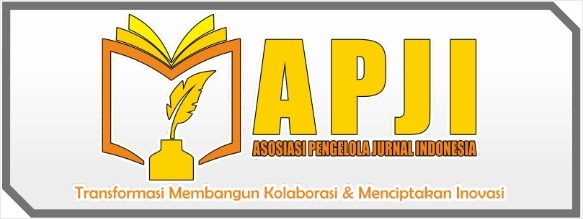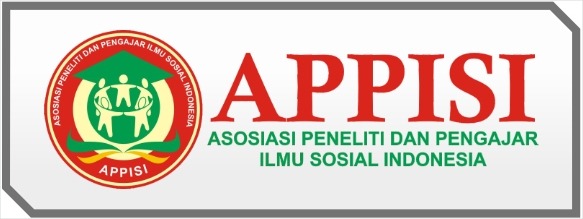Minat Masyarakat dalam Proses Pembuatan Noken Sebagai Nilai Budaya Pada Suku Miyah Kabupaten Tambrauw
DOI:
https://doi.org/10.33506/jn.v9i1.2923Keywords:
Noken; Interest; Cultural ValuesAbstract
Noken is a typical Papuan knitted bag, which cannot be separated from people's daily lives. In particular, the Miyah tribe in the Tambrauw district area, in making noken, they use raw materials from the bark fiber of the ganemon tree and only women can make noken, because they consider that a woman who cannot make noken is not yet mature and worthy of marriage, and likewise on the contrary. The method used in this research is descriptive qualitative, namely by describing the entire series of research from the data search stage, data analysis and drawing conclusions. So the results obtained are that the interest of the people in Tambrauw Regency, especially the Miyah Tribe, in making noken art crafts is still lacking, this is due to the obstacles that occur, namely the lack of socialization from the local government, the availability of raw materials which is still difficult, plus the pandemic so that marketing is not optimal. . Therefore, efforts are made to provide good facilities and infrastructure as well as providing training and guidance, both in improving the community's creative economy and maintaining the preservation of the noken culture itself.
References
A.M Sudirman. 2003. Interaksi dan Motifasi Belajar dan Mengajar. Jakarta PT. Grafindo Jakarta
Attamimi, F., 1997. Pengetahuan Masyarakat Suku Mooi Tentang Pemanfaatan Sumberdaya Nabati Di Dusun Maibo Desa Aimas Kabupaten Sorong. (Skripsi tidak dipublikasikan).
Hildigardis M. I. Nahak, 2019, Upaya Melestarikan Budaya Indonesia Di Era Globalisasi, Jurnal Sosiologi Nusantara Vol.5, No.1 Tahun 2019
Marit, Lenny Elisabeth dan Hugo Warami. 2015. “Noken Papua: Sumber Industri Kreatif Komunitas Di Tanah Papua” Dalam Prosiding Seminar Internasional Dalam Rangka Bulan Bahasa, Sastra, Dan Pembelajaran Sebagai Basis Industri Kreatif. Universitas negeri jakarta: Jakarta
Pekei, Titus. 2011. Cermin Noken Papua Pespektif Kearifan Lokal Mata Budaya Papua. Ecology Papua Institute – KEMENPEREK: Nabire
Santy Adriany, 2013. Minat Kerja Mahasiswa Program Studi Pendidikan Teknologi Agroindustri FPTK UPI. Skripsi pada FPTK UPI : tidak diterbitkan
Sendjaja, S. Djuarsa, 1994, Teori Komunikasi, Universitas Terbuka, Jakarta
Slamet.2003. Belajar dan Faktor-Faktor yang mempengaruhi.PT.Bina karya. Jakarta.
Silalahi, Ulber. 2010. Metode Penelitian Sosial.Refika Aditama: Bandung.
Sugiyono. 2016. Metode Penelitian Kuantitatif Kualitatif dan R&D. Alfabeta: Bandung.
Titus. Pekei, 2015.Sang Penggali Noken. Ecology Papua Institute (EPI).TigiDeyai-Papua
Warami, Hugo. 2014. “Noken Papua: Cermin, Transformasi, dan Format Negosiasi Damai” Prosiding Seminar Internasional Tradisi LisanIX, Manado-Bitung, 21-24 September 2014. Pemkot. Bitung-ATL Pusat: Manado.
Yus, D. (2016). Kearifan Lokal Kerajinan Bordir Tasikmala sebagai Ekonomi Kreatif Terbuka untuk Modern. Journal of Nonformal Education, 2(2), 108-119. DOI: https://doi.org/10.15294/jne.v2i2.6556.
Yunus, R. (2014). Nilai-Nilai Kearifan Lokal (Lokal Genius) sebagai Penguat Karakter Bangsa (Studi Empiris tentang Huyula). Deepublishing: Yogyakarta
https://www.kemdikbud.go.id/main/blog/2021/12/unesco-dorong-upaya-pelestarian-noken-papua diakses pada tanggal 17 September 2020
https://www.beritasatu.com/hiburan/86656/unesco-tetapkan-noken-papua-sebagai-warisan-budaya-tak-benda diakses pada tanggal 17 September 2020
Downloads
Published
How to Cite
Issue
Section
License
Copyright (c) 2023 Nurhidaya, Siti Nurul Nikmatul Ula, Nanik Purwanti, Yubelina Gema Sedik

This work is licensed under a Creative Commons Attribution-ShareAlike 4.0 International License.

